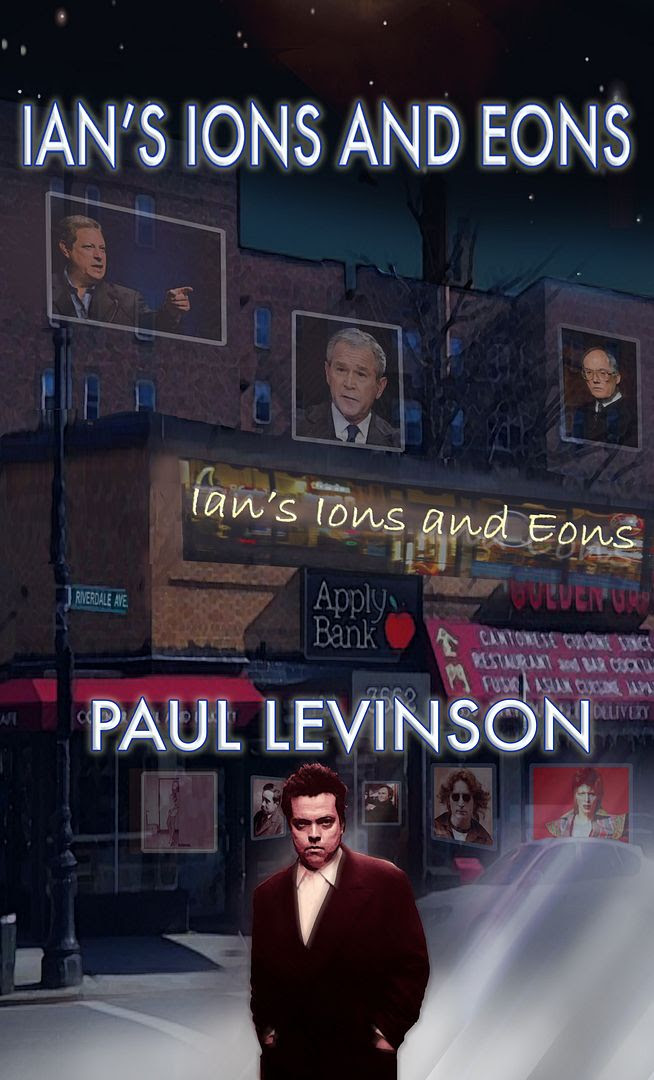Sheffield presents a grimmer than usual portrait of George Harrison in 1970s, after the Beatles disbanded. He's dissolute, unable to hit his notes or remember his lyrics, verbally happy about the breakup but ravaged by cocaine and booze. I knew none of this in the 70s. I was beginning to pull away from music by the middle of the decade, and wouldn't regain my daily proximity until, well ... this very year, and the coming of the Beatles Channel on Sirius XM Radio (not just the music but priceless I-was-there commentary by Peter Asher on his "From Me To You" and his commentary of the listener-voted Top 100 show, where I learned, for example, that the "cool bendy guitar" work on "Ticket to Ride" was by Paul not George) all stoked by Sheffield's book.
I'd heard "All Things Must Pass" in the 1970s, but didn't recognize it for what it was until 2008, when I was finishing up the first edition of New New Media, and chose "All Things Must Pass" as, ironically, a perfect example of the immortality of music on YouTube, or of some great things never passing.
Sheffield cites someone who says "All Things Must Pass" is the "wisest" song the Beatles never included on an album (they decided not include it on Let It Be). He agrees, and judges it one of the very best of the Beatles songs released to the world after the group broke up. I'd agree, and would go a little further.
First, along with "Taxman" and "My Guitar Gently Weeps," I think "All Things Must Pass" is among the best Beatle songs ever written by members of the group during and after they were together. The lyric is in a class by itself, and couldn't have been written by Lennon or McCartney, or by Lennon and McCartney, either. If Harrison was significantly responsible for the Beatles, in his way as much as Lennon or McCartney, "All Things Must Pass," with its wisdom, sensitivity, and cutting edge, tells us why. It is at least as extraordinary as the closest Lennon and McCartney songs in theme, which I guess would be "Across the Universe," "Long and Winding Road," and "Two of Us".
Ironically but indicatively, the best performance of "All Things Must Pass" now on video is at the George 2002 memorial concert, and is sung just perfectly by Paul. (And, of course, I can't now find this video on YouTube - here it is on Vimeo.) (If your soul doesn't get choked up watching this video, you're not fully human.) The song indeed passed, but unto another Beatle, and therein the future at large, and humanity both here and now on Planet Earth and in the future in the stars.
Happy New Year everyone - I'll see you here next year, very soon, with more reviews of this superb book.
See also Review of Rob Sheffield's Dreaming the Beatles 1 of X: The Love Affair ... 2 of X: The Heroine with a Thousand Faces ... 3 of X: Dear Beatles ... 4 of X: Paradox George ... 5 of X: The Power of Yeah ... 6 of X: The Case for Ringo ... 7 of X: Anatomy of a Ride ... 8 of X: Rubber Soul on July 4 ... 9 of X: Covers ... 10 of X: I. A. Richards ... 11 of X: Underrated Revolver ... 12 of X: Sgt. Pepper ... 13 of X: Beatles vs. Stones ... 14 of X: Unending 60s ... 15 of x: Voting for McCartney, Again ... 16 of x: "I'm in Love, with Marsha Cup" ... 17 of X: The Split ... 18 of X: "Absolute Elsewhere" ... 19 of X: (Unnecessary but Brilliant) Defense of McCartney ... 21 of X: Resistance ... 22: The 70s Till the End ... 23: Near the Science Fiction Shop ... 24 of 24: The Last Two
And here's "It's Real Life" -- free alternate history short story about The Beatles, made into a radio play and audiobook and winner of The Mary Shelley Award 2023

lots of Beatles in this time travel







